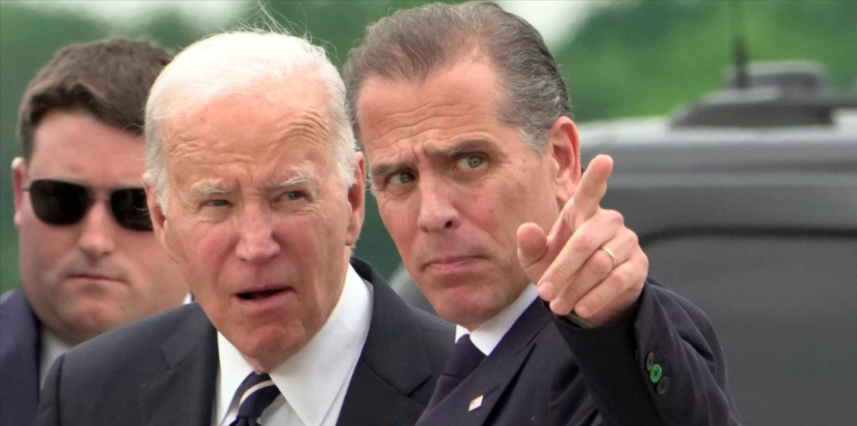Judge in Hunter Biden Case Shreds Joe Biden Over Pardon Claims, Says President Is Attempting to 'Rewrite History'

President Joe Biden’s decision to pardon his son, Hunter Biden, has sparked fierce criticism from Republican lawmakers and conservative commentators since its announcement on Sunday evening. Even prominent Democrats have called it a “bad precedent that could be abused.”
On Tuesday, District Judge Mark Scarsi, who is presiding over Hunter Biden’s tax case, issued a scathing response that added fuel to the fire. In his court order, Scarsi criticized the president’s justification for the pardon, which framed Hunter as the victim of politically motivated prosecution—a claim even Biden’s own Justice Department did not support.
“Two federal judges explicitly rejected Mr. Biden’s assertions that the Government prosecuted Mr. Biden because of his familial relationship to the President,” Scarsi wrote.
He further noted, “The President’s own Attorney General and Department of Justice personnel oversaw the investigation leading to the charges. In the President’s view, this group of federal civil servants—including the undersigned—are unreasonable people.”
Scarsi, who was appointed to the federal bench in 2020 by then-President Donald Trump, also addressed parts of Biden’s statement that attributed Hunter’s criminal conduct to his struggles with addiction. Biden claimed that individuals who fall behind on taxes due to addiction but later repay them are typically spared criminal charges. However, Scarsi made it clear that the facts of the case contradicted this narrative.
“Upon pleading guilty to the charges in this case, Mr. Biden admitted to engaging in tax evasion after his period of addiction,” Scarsi wrote. He highlighted that Hunter improperly deducted personal expenses, such as luxury clothing, escort services, and his daughter’s law school tuition, as business expenses. [Emphasis in original.]
Additionally, Scarsi noted, “Mr. Biden admitted that he ‘had sufficient funds available to him to pay some or all of his outstanding taxes when they were due,’ but chose not to. Instead, even after regaining sobriety, he ‘spent large sums to maintain his lifestyle’ in 2020.”
The president’s pardon statement, notably, made no mention of Hunter’s spending on “escort services.”
Scarsi also tackled the constitutional limitations of presidential pardons. While the Constitution grants the president broad pardon powers, Scarsi wrote, “nowhere does the Constitution give the President the authority to rewrite history.”
The judge pointed out another controversial element of the pardon—it covered potential future offenses. The language stated that Hunter Biden was pardoned for any crimes he “has committed or may have committed or taken part in” during the period from January 1, 2014, to December 1, 2024.
Because the pardon was issued on December 1, this wording could be interpreted as allowing Hunter Biden to commit additional crimes until midnight—a prospect that Scarsi deemed unconstitutional.
“In legal terms, the warrant may be read to apply prospectively to conduct that had not yet occurred at the time of its execution, exceeding the scope of the pardon power,” Scarsi wrote.
However, the judge ultimately concluded that this issue wasn’t critical enough to invalidate the pardon as a whole. “The warrant explicitly brings the charges in this action within the ambit of the pardon, indicating presidential intent for the pardon to apply to this case even if it is unconstitutional in other respects,” Scarsi noted.